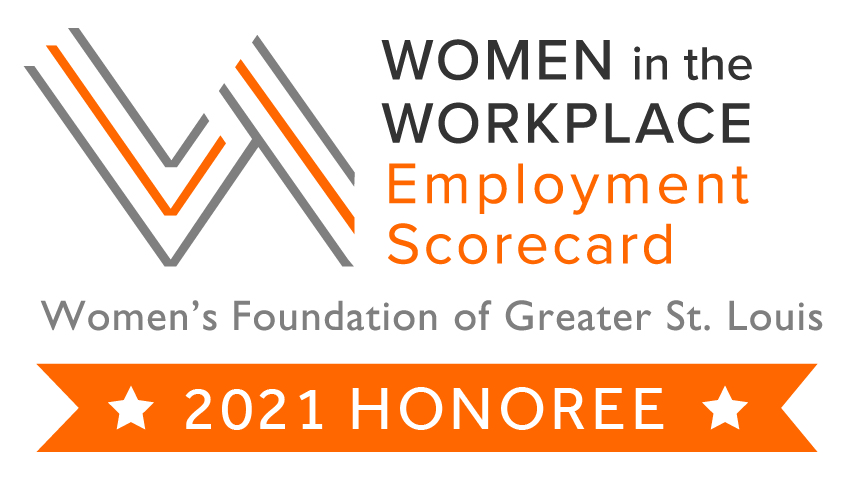P.O. Box 39429
St. Louis, MO 63139
Healing Action Named A Top Place for Women to Work in New “Women in the Workplace” Report.
The Women’s Foundation of Greater St. Louis Recognizes Healing Action for Demonstrating A Strong Commitment to Workplace Gender Equity.
ST LOUIS – July 12, 2022 – Today, Healing Action was recognized by the Women’s Foundation of Greater St. Louis (WFSTL) as a top place for women to work in the fifth annual “Women in the Workplace: Employment Scorecard.” Healing Action was recognized as one of 24 St. Louis employers demonstrating excellence in four areas of workplace gender equity – leadership, compensation, flexible work policies, and recruitment and retention.
Katie Rhoades, Healing Action’s Founding Executive Director states, “It’s an honor to be recognized with such a great cohort of organizations empowering St. Louis Women. It’s a responsibility and a privilege to ensure employee’s health and wellbeing at Healing Action, as they are part of the foundation of what we do. We believe that an environment that supports women is an environment that is better for ALL employees and the success of the organization.”
The Women in the Workplace Scorecard recognizes 24 small, medium, and large companies in the St. Louis region who showed a strong commitment to women in the workplace through measurable outcomes, key policies, and best practices. Criteria includes demonstrating results with women in a minimum of 28 percent of top leadership roles; a minimum of 25 percent of women in the top 10 percent of the most highly compensated employees; a starting wage higher than the Missouri minimum wage; family-friendly flexible work policies; and recruitment and retention programs targeted at advancing women.
Unlike many “Best Places to Work” reports that rely on employee opinion surveys, the Women in the Workplace: Employment Scorecard looks at objective criteria and outcomes. Through a blind data review process by a six-person panel, the Scorecard evaluates company employment practices and their impact on gender diversity. Designated organizational representatives were asked to answer specific questions based on existing policies, practices or employee data.
“This year’s honorees are committed to helping women in the workplace thrive in our region, and they continue to overcome pandemic challenges by ensuring their policies and practices meet the current needs of women,” said Carrie Crompton, executive director of WFSTL. “Many women in the St. Louis region have not returned to the workforce due to a lack of childcare and equitable workplace benefits. The purpose of the Women’s Foundation’s annual Scorecard report is to educate area employers on how to create workplaces where women can be successful.”
For access to the full report, visit http://wfstl.org

P.O. Box 39429
St. Louis, MO 63139







